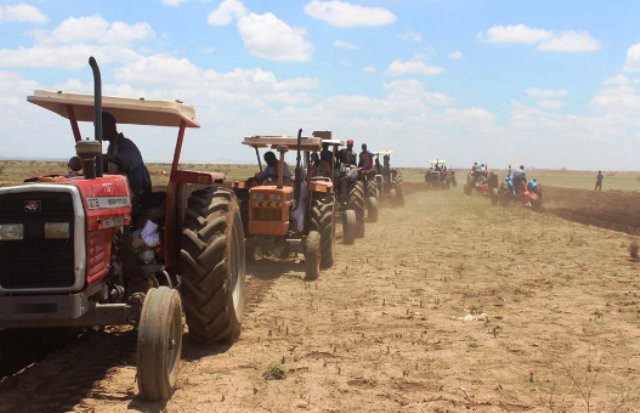Somaliland has no parliament-approved rules and regulations, but a draft document on this area was prepared by the Ministry of Agriculture with funding from the European Union in 2008. It has to be reviewed and approved and submitted to parliament for approval.
The overall objective of the Agricultural Rules and Regulations is to:
• Promote and sustain agricultural production
• To provide for proper utilization of agricultural land and ensure its development according to accepted use practices and husbandry.
• Ensure that participants in the sector respect and meet set standards for the quality and safety of inputs into crop animal production and outputs from such production.
• Ensure sustainable natural agricultural resources utilization and management
• Ensure prevention and control of crop pests and diseases.
• Promote and ensure air agricultural trade practices
• Promote understanding and ensure implementation o internationally agreed pyhtosanitary 9 PS) measures
• Ensure protection of agricultural workers from health risks arising from handling and use of agricultural inputs.
• Ensure the protection of producers from unnecessary risk in procuring requirements such as planting material, breeding stock and agro chemicals
It is the responsibility of the Ministry of Agriculture and Development to produce:
• Policies, rules and regulations governing the importations, supply, use and quality of any input imported for agricultural purpose.
• To oversee development of agricultural sector in Somaliland which has been in existence for over 25 years, but still lacks coherent national agricultural policy (s), rules and regulations.
• Improve our dealings with private sector, international aid organizations and other governmental bodies require comprehensive policies in place. These policies and laws once completed will help ministry operatives to have specific policies and legal framework which will guide them in their day to day activities.
• Establish legal and regulatory framework to govern the activities and operations of sector players to ensure the adherence to set standards that protect public interests and those of stakeholders.
• To facilitate the sector stakeholders to engage in productive and profitable sartorialactivities while at the same time ensuring that the interest and wellbeing of the general public are adequately protected.
In fulfilling one of its mandate, the ministry of agriculture and development have succeeded in issuing land ownership certificate that includes a headshot of the owner,his name and a 10-digit code. This code represents the exact location of the farm. Almost every farmer in the western part of Somaliland now has one.
For generations, farm land had not been formally surveyed, so there were no officially recognized boundaries. The authorities would not issue any land title deeds.
The situation has been worse since the end of the civil war. When the farmers returned there were many disputes over land, which sometimes became violent. No more – our land boundaries are now indisputable. This transformation has been achieved through a major UNDP-supported initiative, implemented by a local NGO, Cadastral Surveys, in collaboration with a Canadian company, NAC Geographic Products Inc. (NACGEO). It is in the need of the hour to expand the system to other regions of Somaliland with either internal or external support.
However, the following rules and regulations should be adopted to ensure the safety of both plants, animals and humans.
• Plant protection rules for the prevention of introduction or spread of crop pest and diseases.
• Rules and regulations for crop seed and plant quality
• Rules and regulations on products for the control of crop pests and diseases.
• Rules and regulations on agricultural land
• Rules and regulations of farmer cooperatives.
Thus, the following policies need also to be established to provide sector guidance.
o Agricultural policy
o Seed policy
o Investment policy
o Agro-chemical policy
o Agricultural land tenure policy
o Agricultural research policy
o Agricultural extension policy
o Agricultural marketing policy
o Agricultural cooperative policy
o National soil policy
o National food policy
After these policies, rules and regulations are established and approved by the parliament. Any persons or entities violating these rules and regulations are subjectto disciplinarianadministrative and other penalties as provided in the regulations and other applicable laws of the republic of Somaliland. In addition, the violating input (seed, pesticide and plant material) may be seized and destroyed and /or violating entity‘s license may be revoked.
Such revocations of license shall mean that violating entity cannot continue in legal handling of the inputs concerned.
By: Abdirahman Ibrahim Abdilahi
Abdirahman270@gmail.com






































